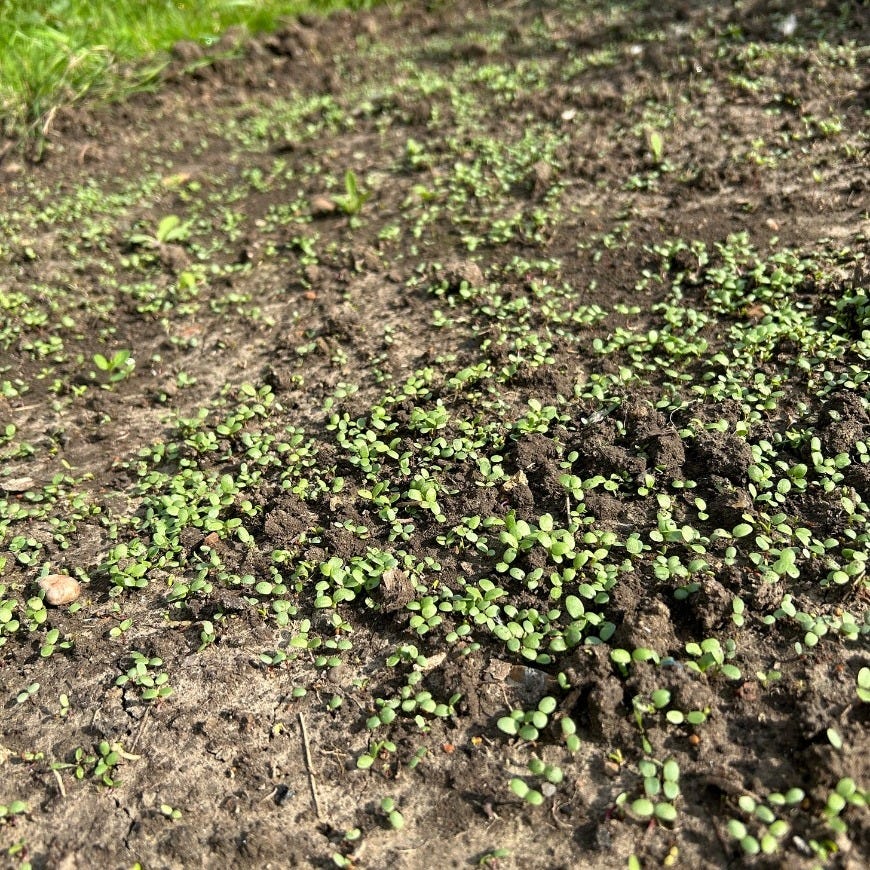Autumn arrives early
How to adapt our gardens to climate change, Medway's lack of allotments, a perfect Medway park for autumn, and more
A few months ago, I wrote in my previous article that spring is arriving earlier each year, and we gardeners need to learn to adapt to it. Well, it seems that this chaotic year continues to unsettle the traditional seasonal patterns, as autumn has now arrived early, too.
As explained in a recent BBC article, the season has been brought forward by plants trying to cope with the record high temperatures in the UK, as well as the very dry weather this summer. This summer has officially become the hottest on record, meaning all the top five hottest summers have occurred since 2000. Many deciduous plants and trees are writing this season off, dropping their leaves and shutting down for the year. This means that there will not be as much energy stored inside the plant for it to survive over the winter and into next spring.
Although this is a natural coping mechanism designed to protect the plant from rare climatic conditions that could harm it, it relies on the hope that next year will be fine. The problem is that these really hot and dry summers are no longer a rare occurrence that happens every ten years. They are happening every few years, making our native plants weaker and weaker.
As I said in that previous article, I do think we need to fight climate change and try to reverse the damage it’s doing to our planet. However, the consequences are already here, and we must learn to adapt to them if we are to ensure our gardens continue to grow.
First, we must accept that there will be certain traditional native plants and trees that will no longer be viable to grow in our new climate. Instead, we must start growing plants that thrive in our new conditions. I can see the UK moving towards a more Mediterranean-style planting, and I wouldn’t be surprised to see more palm trees and olive trees growing in our parks and gardens. We can also try to protect some traditional trees from more stressful conditions by regularly mulching to retain moisture and feeding, but this would only be feasible for small or medium-sized trees.
This potential extended growing season is also useful for future vegetable growing in our gardens and allotments. With earlier harvests, there is still plenty of time for a second crop in the same bed. We would have to be clever in what we grow and in what order. Maybe growing vegetables that prefer cooler and damp conditions in the late summer/early autumn periods, whilst experimenting with melons at the start of the year.
We could also use this extended growing season to rejuvenate the soil in vegetable plots. This year, I’ve sown red clover as green mulch on one of my now-empty allotment beds. These plants capture nitrogen in the atmosphere, lock into the soil, and improve its vitality for next year.
Whatever happens during the rest of 2025, it’s clear that this year has been another year of extremes that are now becoming the norm. Climate change is changing how we garden, and we have to make sure we can change with it.
Not a lot of allotments
I’m sure most of you know how much I love allotments. I think they are brilliant and can help solve many of our social problems as well as help protect our planet. Over the years, I’ve regularly campaigned for better allotment provision across Medway. That’s why I’m not surprised to see Medway coming bottom across Kent in allotment provision in a recent analysis by the Guardian newspaper.
In the article, the Guardian used Ordnance Survey data on land use to work out how much allotment land is set aside per resident for any given local authority. There are no surprises that central London councils came out the worst, with Westminster Council having 0sqm per resident. Compared to them, Medway is much better, having 1sqm per resident. However, neighbouring councils at Gravesham and Swale have 1.4sqm and 1.8sqm respectively. Dover has over double our allocation at 2.2sqm, but the best in Kent is Sevenoaks with a really good 3.3sqm per resident. The best council in the UK was Redcar and Cleveland with 8.9sqm, and the average across the country was 1.9sqm.
Keep reading with a 7-day free trial
Subscribe to Local Authority to keep reading this post and get 7 days of free access to the full post archives.





